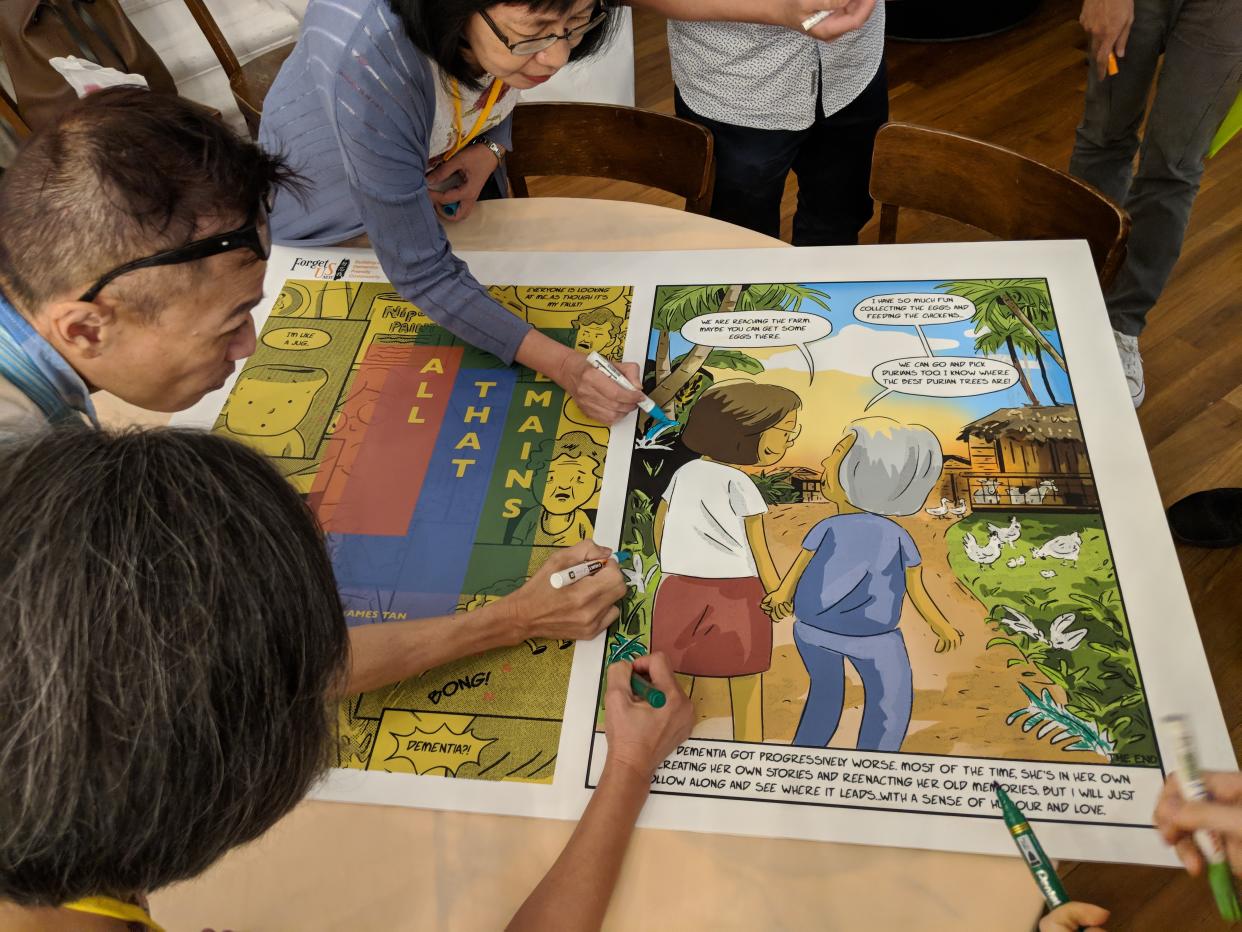Championing caregivers of dementia patients through videos, graphic novel

Irene Law gave up her full-time job as an owner of a childcare centre in the UK, where she has called home for three decades, and moved back to Singapore when her father was diagnosed with vascular dementia in 2013.
Her 88-year-old father would occasionally pick fights with her and refuse to get out of bed. Once, he even got violent with her and hit her. Nights are often disrupted for the 62-year-old and her family when her father is unable to sleep and would wander around the house.
Law’s struggles, along with those of 22 other family and professional caregivers, will be showcased in 50 videos as part of a partnership between Lien Foundation, Alzheimer’s Disease Association (ADA) and Khoo Teck Puat Hospital to kick off World’s Alzheimer’s Month.
The videos, which were officially unveiled at the National Museum of Singapore on Tuesday (4 September), will also feature caregivers sharing tips on how to manage common effects of dementia, including forgetfulness, inappropriate behaviour and confusion, as well as how to communicate skillfully with persons afflicted with the disease.
Lee Poh Wah, CEO of Lien Foundation said, “Caring for persons with dementia is a physically, emotionally and financially demanding journey fraught with uncertainty.
“This year, we are focusing on the (local) caregivers, beyond public education…We wanted to curate something meaningful for people to access any time.”
Thirty of the short videos made their debut on Monday at www.forgetusnot.sg. The rest will be uploaded online progressively by end-September.
The video launch is complemented by “All That Remains”, a 72-page graphic novel that draws on personal encounters with loved ones suffering from disease, as well the World Alzheimer’s Month conference (21-22 September) and other related-events.
About 2,000 copies of the book will be distributed for free during the conference and at public places such as hospitals, ADA’s care centres, and libraries. It is also available online.
James Tan, 45, its author, hopes the book will convey “the emotional impact to balance the external clinical viewpoint” of dementia.
“By translating these (encounters) to comics, it will allow readers to better reflect on the perception of dementia…and more importantly, it enables discussions on difficult subjects relating to dementia,” said Tan. The author based part of the novel on his father-in-law’s experience in caring for the latter’s wife, who has dementia.
Jason Foo, CEO of ADA, hopes these efforts will help mobilise the community to better support people suffering from dementia in Singapore, as well as remove the stigma associated with the disease.
“There is still a lot of (stigma) in Singapore,” said Foo. “We need to make it acceptable, so people can reach out (to the community) and are free to share what is happening in their family.”
An estimated 78,000 people, or one in 10 aged 60 and above, in Singapore have dementia, based on a study and 2017’s demographic data.
The number is expected to almost double to 130,000 to 140,000 people with dementia by 2030, based on the projection of a 2015 Duke-National University of Singapore study on Singapore’s elderly population.
Correspondingly, the number of calls to ADA’s dementia helpline has grown by almost 40 per cent in three years, from 6,068 calls in 2015 to 8,411 calls in 2017. Similarly, attendance at caregiver support groups has increased by 20 per cent in three years, from 713 in 2015 to 841 in 2017.
Lee stressed the need for the government to focus efforts on dealing with the disease amid a growing aging population. He called for a national plan for dementia, similar to the government’s ongoing war against diabetes.
“Dementia is a prevalent and under-supported medical condition, not just in Singapore,” said Lee. “We can certainly make greater strides in developing dementia care services, support, and awareness.”
For Law, she hopes to see more activities that aim to engage dementia patients like her father, such as exercises, bonding with pets and interacting with children. For the latter, she suggested a partnership between pre-schools and senior care centres to allow elderly with dementia to engage with children in musical activities.
“My father likes kids. They are cute, and can get him to do anything,” she quipped.
Related stories:
NDR 2018: CHAS extended to all Singaporeans with chronic conditions
Eldercare workers in Singapore paid the lowest among 5 Asia Pacific economies: study
Ex-Sungei Road market vendors travel across Singapore to eke out living


